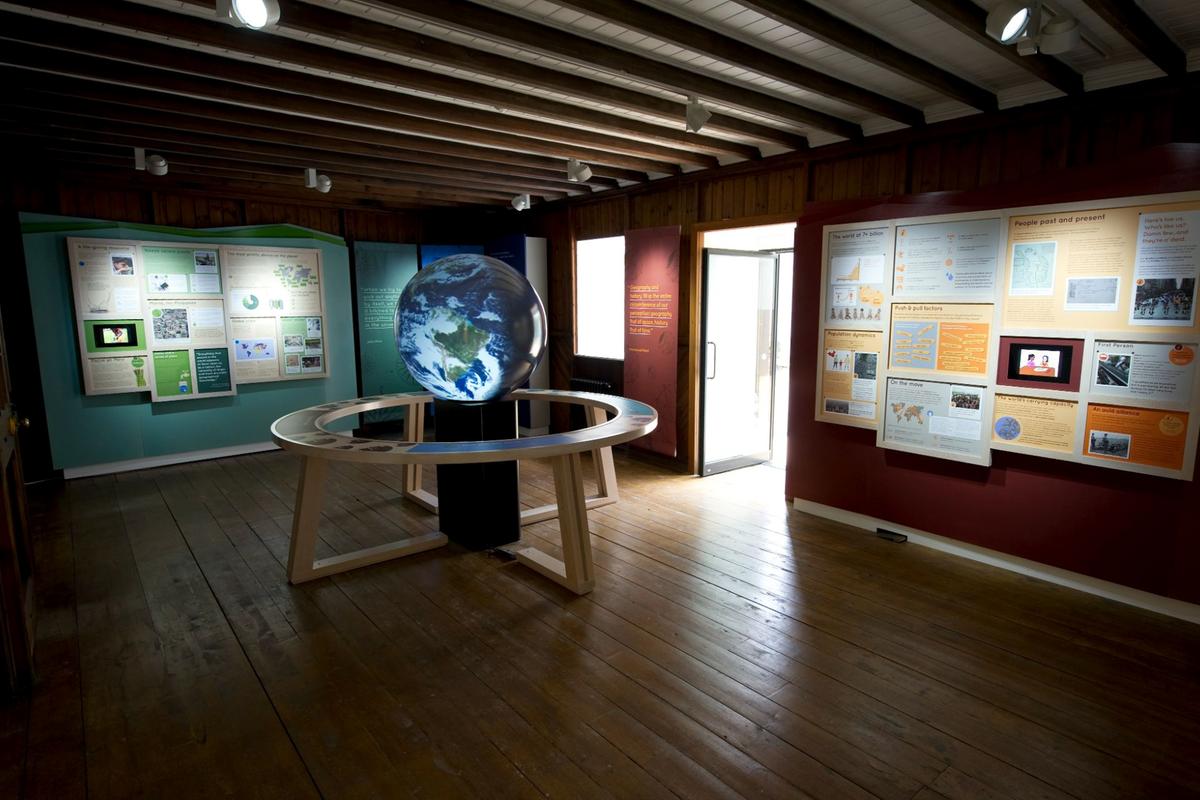Published 26/04/2023
By Holly McNair, Communications Officer, The Royal Scottish Geographical Society.
When people hear the term geography, they quite often think of oxbow lakes and U-shaped valleys, but it is so much more than this. It plays a huge role in tackling some of the world's most pressing issues including climate change, health inequalities and biodiversity loss.
Sharing geographical knowledge and skills is crucial in solving global emergencies and now, more than ever, to help achieve Scotland's Net Zero 2045 goal and the UK's Net Zero 2050 goal.
The Royal Scottish Geographical Society (RSGS) is a small, dynamic, educational charity, working across Scotland and beyond to promote greater geographical understanding of people, places and the planet. Despite its size, RSGS is increasingly viewed as one of the most dynamic geographical societies in the world today by striving to inform people on key issues affecting them, inspiring them and convening cross-sectoral groups to influence positive change.
Due to the far-reaching scope of geography, RSGS operates a very broad spectrum of work and activity including public talks, meetings and events (typically 100 a year, across Scotland). We also offer our quarterly magazine, The Geographer, with each edition focussed on a key geographical theme and providing educational resources, continuing professional development and policy support to schools and universities.
We also maintain a fascinating historical collection and Visitors Centre at the Fair Maid's House in Perth.
RSGS Explorers in Residence Luke and Hazel with RSGS flag summit Mt Blanc. © RSGS
Climate change
For us, climate change is a major area of focus. We have been collaborating with the University of Stirling, University of Edinburgh and the University of Strathclyde to educate thousands of people on the climate crisis and increase their understanding through our Climate Solutions course, which now has more than 100,000 people enrolled globally. Tapping into the huge potential for organisations and individuals to support national and international efforts to combat climate change. By focussing on solutions, the course is helps to empower and inform people in all walks of life to begin to take action to reduce emissions.
We also host Climate Emergency Summits to provide space for motivated people from across sectors to come together in a safe and open workshop environment to offer solutions to the climate emergency.
To further our reach, we have rallied together with other geographical societies from across the globe, to discuss our collective and respective responses to the climate emergency, ways in which the geographical community can work together to better address the vital issue of the biodiversity crisis, and our potential to make a real difference in the decades ahead.
Collaboration
As a small charity, it is important that we collaborate with others. We think that problems are better solved the more people that you can get around a table, the more people that agree the way forwards and the more holistically you tackle a problem.
Universities are a key part of our network, but we also work closely with companies like Jacobs, that are rolling out the Climate Solutions course to their entire workforce. We've been working with Balfour Beatty, highlighting carbon alternatives and cement alternatives.
In October 2022, we ran a conference with the Open University, attended by multiple sectors within the climate arena to understand what signs of positive change have begun to take root since COP26, and what more needs to be done. We are heavily involved in agriculture, land use and transport, and just recently, we brought together many key individuals and organisations from across the education sector, to discuss how to maximise and promote the relevance and uptake of geography.
Conference with Open University ahead of COP27. © RSGS
So, collaboration is key, and with our broad reach we are well placed to bring multiple sectors and organisations together around different issues, to strive for a common goal, and improve things for the future.
Ultimately almost everything we do is with an eye on the future and therefore the next generation, following the belief that we should hand over the Earth in a better state than we inherited it. There are many ways that we are aiming to educate and inspire the next generation directly; through lesson plans, our magazine, our Inspiring People talks, and our Chalk Talks online geography lessons, created as a learning resource during lockdown for students studying from home.
But we want to create more opportunities too. We have projects to mentor young people, add skills and develop their own abilities, such as the Young Geographer magazine, where we support a young editorial board as they produce their own magazine on any topic that they choose. We have also set up a Future Generations Fund, which is used to invest in activities to support and inspire young people. With the fund we are planning to kick-start a five-year programme through which we aim to substantially increase our work with and for young people - promoting geography in schools, convening and mentoring young geographers, sharing skills and encouraging travel, providing public platforms, and much more.
These activities are a small reflection of the variety of work we engage with, but all with the goal to carve out a better future and do so in a positive way. As important as it is to inform people about major issues and ratchet up commitments, we must also take time to reflect on the positive changes we have made, to inspire people that change is deliverable, kindle hope for the future, and influence positive change going forward.
To find out more about RSGS visit - www.rsgs.org



